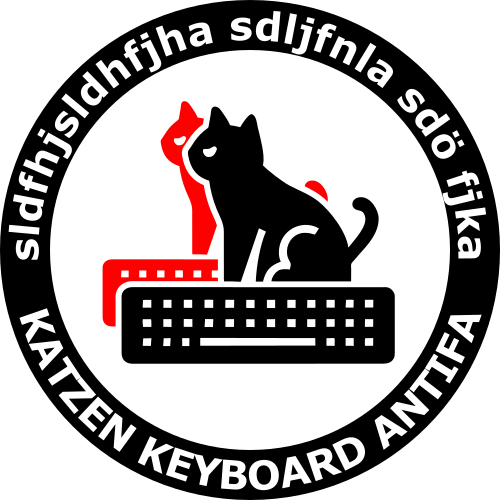Pretend your only other hardware is a repurposed HP Prodesk and your budget is bottom-barrel
Sell them and buy low budget low power consumption disks that would fit my purpose.
Enterprise-grade usually has enterprise-grade power consumption. From the power saving alone you can buy nice stuff.
Please do not sell used enterprise hard drives, especially if you got them from your employer. This is how those emberrasing company secrets get leaked and we can’t have that can we? :)
Then those disks should have been wiped at the company before they were allowed to leave the building.
This is a great observation, and it made me do some math:
If my point of comparison is something like a seagate ironwolf 4T vs a WD Ultrastar 4T:
Seagate Ironwolf: - 3.7W*24 Hours/day*365 days/year = 32kWh per year * $0.18/kWh = $5.84 per year in power usage * 12 disks in an array = $70.02 per year *Edit: Looking at this closer, a more reasonable comparison would be an ironwolf PRO disk, since this is a NAS use-case (24-7 run time, large and repeated writes and reads, ect). The power consumption for that is 5.5W, which is a lot closer to the Ultrastar* WD Ultrastar: - 7W*24 Hours/day*365 days/year = 61kWh per year * $0.18/kWh = $11.05 per year in power usage * 12 disks in an array = $132.6 per yearSeems like i’d save maybe $70 per year. I feel like that difference might even be justifiable if the enterprise drives are half as likely to fail (seagate ironwolf has an AFR of 0.87%, WD Ultrastar is 0.44%).
Something to think about, at least
In defence, the power prizing here is a tad different, €0.45/KWh was the prize here. Also, when those disks are given away, they are usually smaller then the current standard and less efficient. On the other hand, those enterprise grade disks generate some heat, saving on the heating bill.
that’s all true. I’m anxious to get them open and see what they test at; it really seems like some of them are unused, but that could just be because they were refurbished and re-packaged. I’m really curious what the spin times are.
635 days is a fucking long year.
2020 mood math.
Sometimes a day just FEELS like it’s 48 hours long.
By selling them and buying something more useful.
I would sell a few of them to shore up the budget, then use those funds to build a NAS box. You can buy everything other than drives for a few hundred, less if you have spare parts sitting around.
Sell. I don’t run a data center and I’m not a cloud provider. I have a meager home server with some stuff plugged in and serve some tv shows. I want this to be as low foot print as possible. If it goes over 10w idle, I’m shutting it down lol.
Mash into a thick paste and smooth over wholewheat bread with a dash of salt.
Looking past the folks recommending to sell them, it seems you have a handful of useful responses here (welcome to the internet & endless September). /snark Look past the naysayers, it will be fun and a learning experience just getting these drives up and running - a worthwhile experience IMHO.
I am down a similar path now, with a bunch of SAS drives. What I have learned/experienced so far:
- Forget any USB docking stations or enclosures, they may advertise working for all SAS drives but are hit & miss expensive but cheaply made plastic crap.
- There are a plethora of adapters available online that say you can convert SAS to SATA. Do not believe them - you need a SATA controller that also supports SAS. You may luck out and have a motherboard that has the right SATA chipset that supports SAS, you may not.
As others have mentioned in this thread, the easiest & optimal approach seems to be:
- Get a low end workstation or server that supports SAS in the chipset and the drive bays
- Get a low end workstation or server that supports SAS in the chipset and that you can add the drive bays you need
- Get a low end workstation or server that you can install a controller card that supports SAS
I scored a free workstation from craigslist and one from freecycle, for another project on the workbench.
HTH, and good luck!
(Edited for formatting)
Yup, I ended up frankensteining a nas from various craigslist parts (i actually found a low-power business-class server motherboard that has worked out well for the purpose). Had to get a SAS HBA card and a couple SFF-8087 cables to do the job right, and I grabbed an old gaming case from the 2010’s to hold it all, but it was relatively seamless. I had one of the drives go out already, but luckily I had it in a raid configuration with parity so it was just a matter of swapping out the drives and rebuilding.
It’s been fun and rewarding, for sure! I’m glad I didn’t sell them like these other dweebs told me to lol
You don’t say what the capacity is or how old they are. They might not be worth using.
Acronyms, initialisms, abbreviations, contractions, and other phrases which expand to something larger, that I’ve seen in this thread:
Fewer Letters More Letters NAS Network-Attached Storage NUC Next Unit of Computing brand of Intel small computers PSU Power Supply Unit SATA Serial AT Attachment interface for mass storage SSD Solid State Drive mass storage ZFS Solaris/Linux filesystem focusing on data integrity Zigbee Wireless mesh network for low-power devices
[Thread #492 for this sub, first seen 6th Feb 2024, 12:55] [FAQ] [Full list] [Contact] [Source code]





